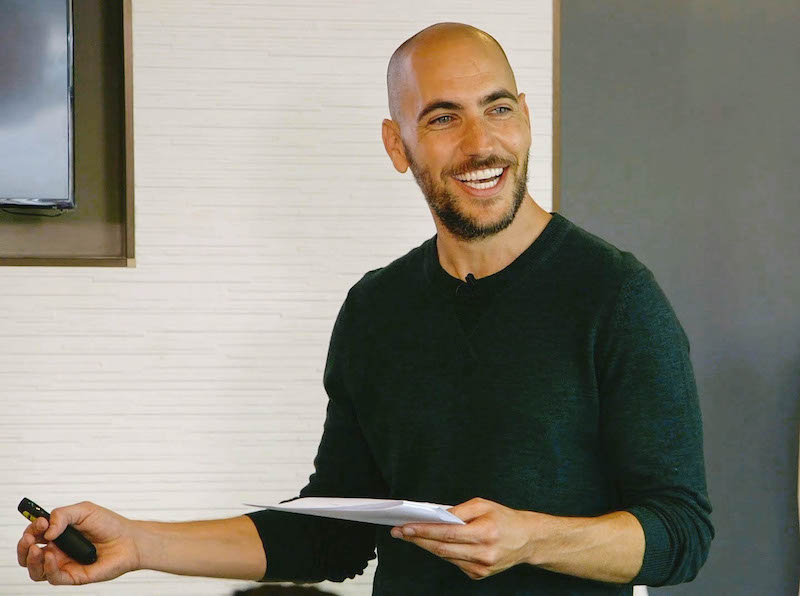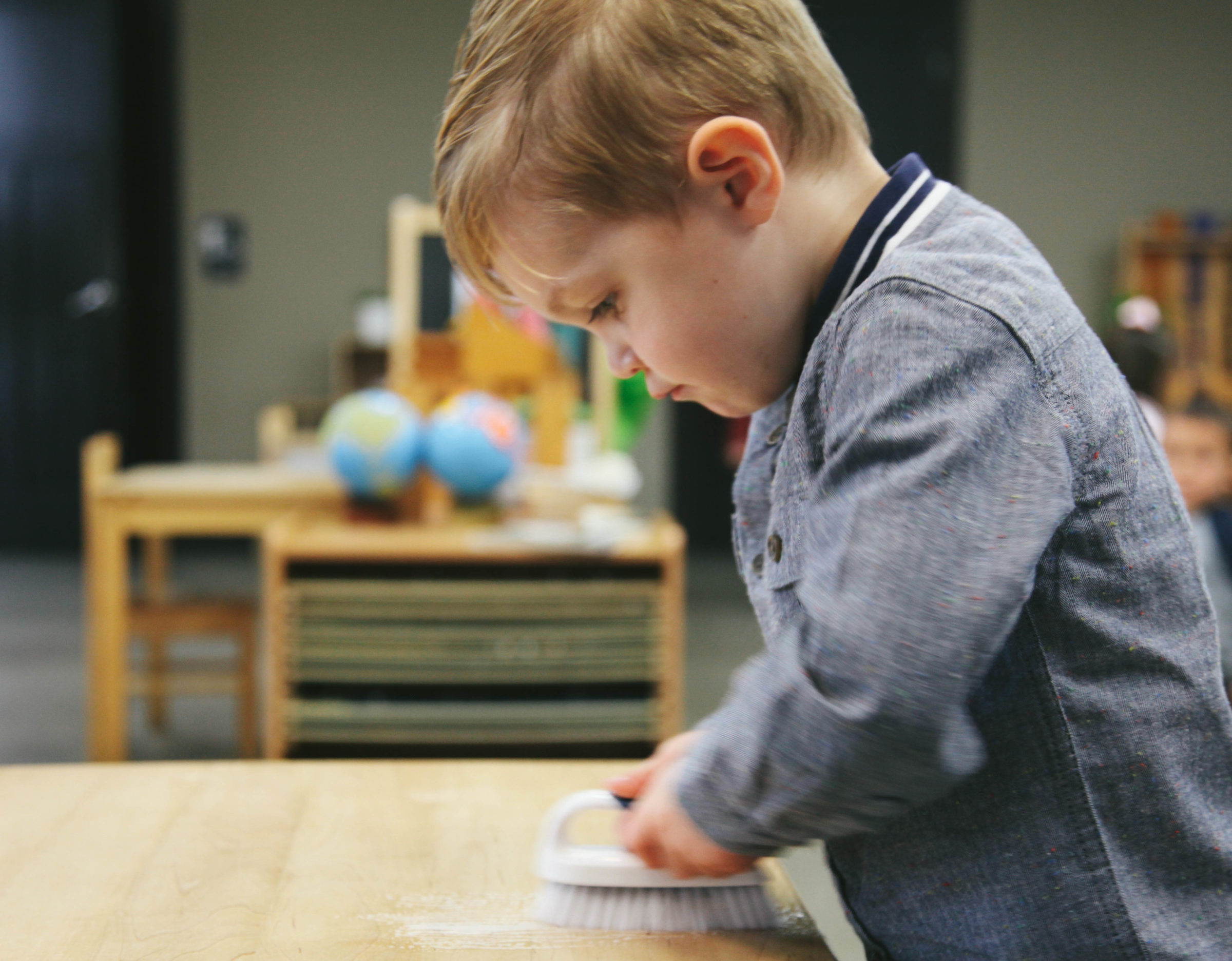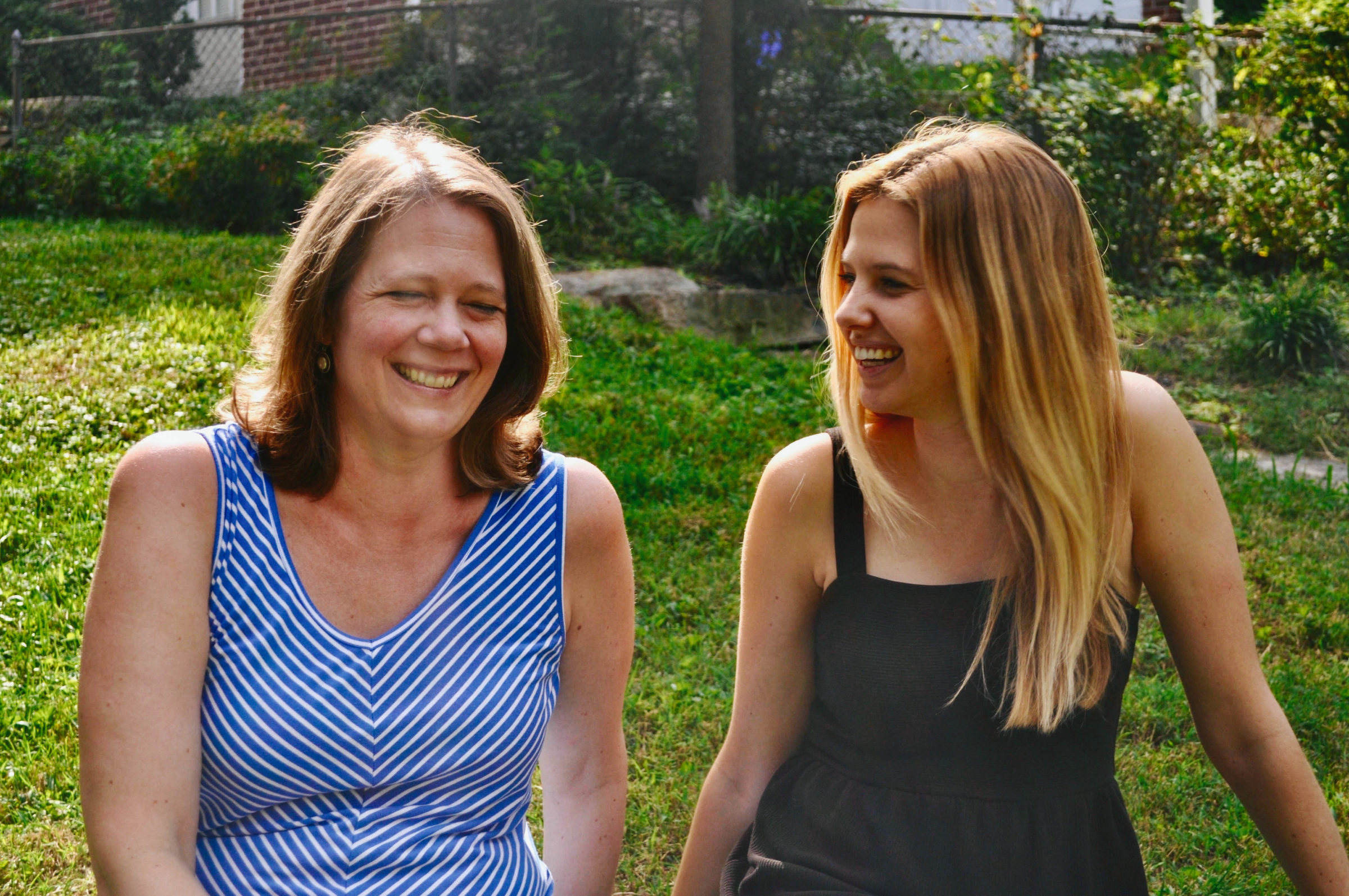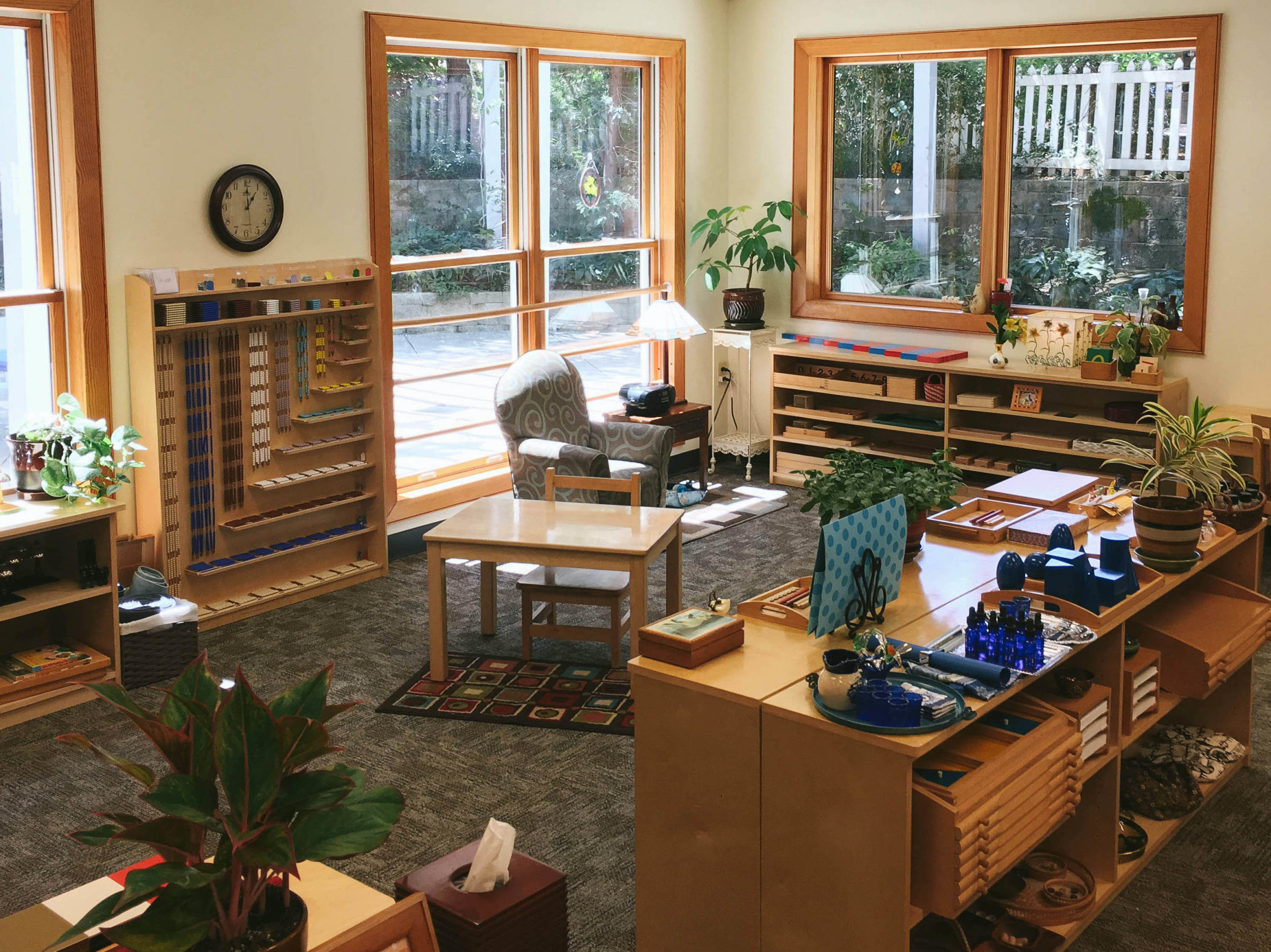Spotlight Jesse McCarthy
Spotlights
Q: Can you tell us a little bit about yourself?
Sure. Maybe to get things started I’ll share a story from my early days.
Over a decade ago I was helping out in the front office of a Montessori school and I heard this wailing.
I followed it down the hallway and discovered a boy, a little over 2 years old, just crying and crying.
His mom was with him and was clearly in a rush. She just wanted to get out of there and was begging him to stop. I really felt for both of them.
The mom then said something to her son like, ~“Please, I need you to go to class. Big boys don’t cry.”
I’ll never forget what came next. The boy looked up at his mom and said, “I don’t want to be a big boy!”
I loved this. In grown-up language the boy was saying, ~“I don’t care about your judgments about what I’m supposed to be. I am sad and upset right now!”
It was great to see a child — anyone really — saying that he wasn’t going to just accept someone else’s “should”. (In this case, that he should be a big boy and not cry.)
Over a decade later, I now know that what this boy needed in the moment was for his feelings to be acknowledged, and that his mom would have been more successful with only a few words: ~“You’re sad right now. You don’t want me to leave. I can get sad too when I have to leave you.” Something like that.
It’s incredible how far a little empathy can go.
Q: So how about your background, your interests?
Well, as a young child I liked learning. But through much of my formal schooling I wasn’t too thrilled with it. I just didn’t find academics all that exciting. I was able to get “good grades” but was rarely inspired. It wasn’t until after high school that I fell in love with knowledge, with just soaking up all I could find.
In college I studied psychology, though I did a lot of my learning outside of school. After graduation I didn’t know exactly what I wanted to do. I toyed around with grad school and going into business; I had plans of working my way up pretty high at one of three companies: Disneyland, Barnes & Noble, or Wahoo’s Fish Taco. Quite an assortment! :)
But it was education that finally got me.
I had the opportunity to teach vocabulary to a small group of 8th graders. It was traditional stuff but SOO much fun. This eventually led me to elementary and junior-high history. And that was it — I was sold on teaching!
Soon I discovered how much I enjoyed understanding why children do the things they do, basically getting at the roots of motivation and aiding children in a more holistic way. You know, not just with academics. (I continued to LOVE teaching history though!) So I became a sort of counselor for our school, when teachers and parents just didn’t know what to do with a child or when a child just didn’t know what to do with himself. I enjoyed tackling the hard problems.
From there I realized that much of the seemingly good and bad behavior in children really just comes from us, primarily teachers and parents, and so my focus shifted. I started spending more and more of my time aiding adults: my colleagues in teacher trainings and parents in group talks and 1-on-1s.
Along the way I became more and more convinced of the value of Montessori for all ages, including for us adults. (At first I thought Montessori was just for “little kids”.) So I was developing my teaching and mentoring in line with the Montessori Method.
Here’s that journey in a nutshell: 1. assistant in the front office of a Montessori school, 2. elementary and junior-high teacher, 3. “student issues” coordinator, 4. teacher trainer and parent liaison, 5. head of school officially trained in Montessori (AMI Primary diploma from MISD), 6. executive developing a chain of Montessori schools, 7. founder of the organization Montessori Education.
A hero of mine, Apple’s Steve Jobs, once said “you can’t connect the dots looking forward.” That’s definitely been true for me. I would not have been able to plan all this from day 1.
Q: So we’ve got your background. What about your dreams?
I’d say to just keep going and going. There have been ups and downs in my journey but it’s been such a special ride for me. My dreams are to just keep at it, to grow and grow.
Q: Now that the hardest questions are out of the way: What’s your favorite color?
:-) Maybe hazel mixed with some 80s neon blue.
Q: Do you have a favorite book? How about a film?
Yes, my favorite book is The Fountainhead, by Ayn Rand. It was the first novel I literally couldn’t put down. The main character, Howard Roark, has what I’d call perfect self-esteem. He’s just such a unique and good human being. Generally, I read a lot. A few books numerous times. But The Fountainhead is the one I’ve re-read the most.
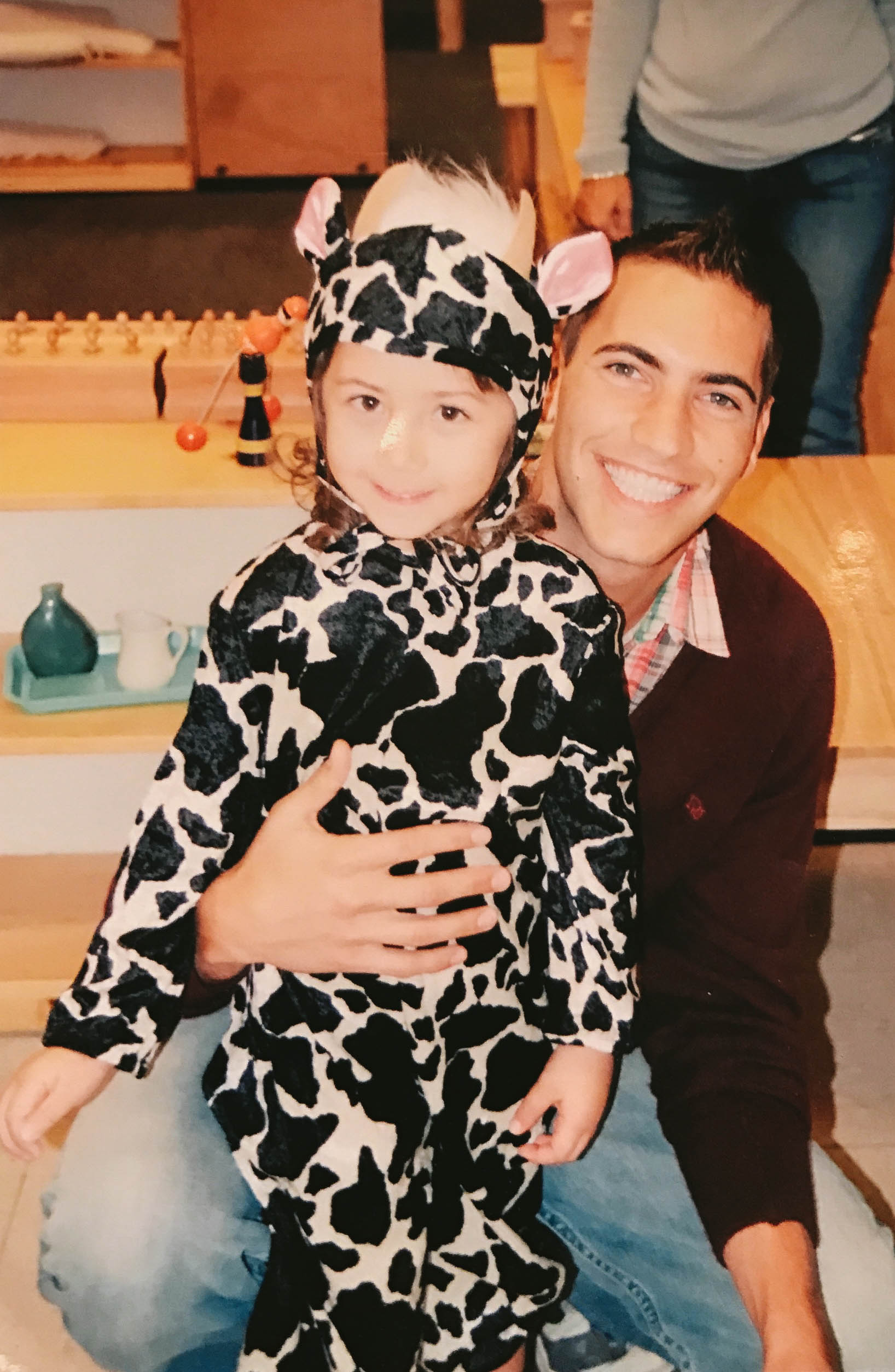
I have two favorite films. One is Pride & Prejudice [2005], the only movie based on a book that I think is better than the book. (And I really like the book Pride and Prejudice!) The other is Batman Begins.
Q: When you close your eyes late at night, and imagine waking up and starting a new adventure: what is that adventure?
These days it’s pretty simple: finding new ways to reach and help more and more teachers and parents, particularly in the work I’m doing with a program called Parenting FastTrack. I’m very singularly focused these days, and it truly feels like an adventure. Over the years I’ve been able to help a lot of parents handle difficult problems — from the (seemingly) small things like, “My child just won’t eat dinner!” to the bigger troubles like, “I feel like a failure as a mom.” This work is a rewarding adventure for me.
Now if you’re talking adventure in the normal sense, then I’d say I want to get back to Africa. In September I was on a two-week safari in Botswana and Zambia (with my own wonderful mom), and it was incredible. I’ve promised myself to get back within 5 years. I want another adventure like that!
Q: What first appealed to you about Montessori?
It was Maria Montessori’s heroic outlook on life. She uniquely saw the great heights that are possible for children, which ultimately means the great heights that are possible for all of us.
Q: What advice do you have for new Montessori adults?
Don’t spend any time with blame, whether of the child or of yourself (or of others). Instead just think through what works and what doesn’t, and how you can improve. The focus should always be on betterment, not on belittling.
At times I used to beat myself up when something went wrong: ~“I can’t believe I did that, how stupid!” Other times I might deflect the problem: ~“Oh yeah, of course Johnny didn’t learn that, he’s being lazy again.” But now I keep it as objective as possible for myself and for the parents and teachers I work with, by using a three-step process:
- Unbiased observation: What actually happened?
- Emotional reflection: What do I feel about it? & How does the child/other adult feel about it?
- Considered hypothesis/action: What can I try next time to get a better result?
Then repeat the steps.
This kind of iterative process is so helpful; it strengthens confidence and virtually ensures success. If you do it long enough you get to a point where it’s like riding a bicycle. The steps just occur automatically. And if I ever fall off the bike so to speak, you know if I feel like a problem is unsolvable or I’m stuck in the blame-game, then I just come back to this 3-step process.
Q: Did you have a “Montessori Moment?”
Yes. I wrote about one in the introduction to my future book, which begins with this: “About 15 years ago, at the start of my career as an educator, I observed in a Montessori school for the first time — and what I saw made me sick.” But that Montessori moment is a lengthy story so I’ll give you a different, briefer one:
Years ago I was sitting in a toddler classroom. It was early in my career, when I still knew very little about Montessori. I looked over and there was this boy with a child-sized pair of scissors. He was cutting a piece of paper with lines on it. And he was doing this over and over again. When done, he’d just get out another piece of paper and go back at it. He did this with such intense focus. It was unlike anything I’d ever seen before. If the boy could speak he might say, ~“Nothing else matters right now except my cutting on these lines as exactly as possible.” He must have cut for 45 minutes straight. And although I was nearby watching him I don’t think he even noticed my existence. An earthquake could have shaken the room and this boy would have rode it through, trying to stay on the lines! It was one of those moments I’ll never forget.
Today, given how much I understand the importance of focus for our success as adults, I think to myself: if a child of 2 can be that engaged on a task, imagine such a young man or woman at 20! Unstoppable.
Q: What’s your favorite Montessori quote?
“One becomes a well-balanced adult only if one has fully been a child.”
For me this quote has a double meaning, though I’m not sure Montessori herself meant both.
First, the part I’m sure Montessori meant: We need to be careful that we’re neither pushing the child nor holding him back. Instead, we allow him to “fully be a child.” When we strike the right balance, of freedom within limits, we offer a child everything he needs to create himself into a “well-balanced adult”. But when we try to get a child to do something he can’t do, or when we impose a ceiling on him that doesn’t actually exist, he suffers. So let children be children. Give them an environment perfectly prepared for their healthy growth into adulthood.
Second, the part I’m not sure Montessori meant: We need to never give up on ourselves as adults. For instance, say you had a “bad” childhood? Ok, what are you going to do about it now, how are you going to “fully be a child” in your own way? I don’t mean this in the traditional sense of children being able to “play” freely — like to make up for a troubled childhood you start buying all sorts of expensive grownup toys and acting a fool to “relive” fun you didn’t have as a little boy or girl. No, I mean this in a deeper sense, of openly facing what one might have missed in childhood. Acknowledging both intellectually and emotionally what you might have liked it to be but what you know it wasn’t. And then moving on, with acceptance. So grow into an individual who doesn’t dwell in the past or in what he or she is supposedly lacking. *Choose* to become a “well-balanced adult”.
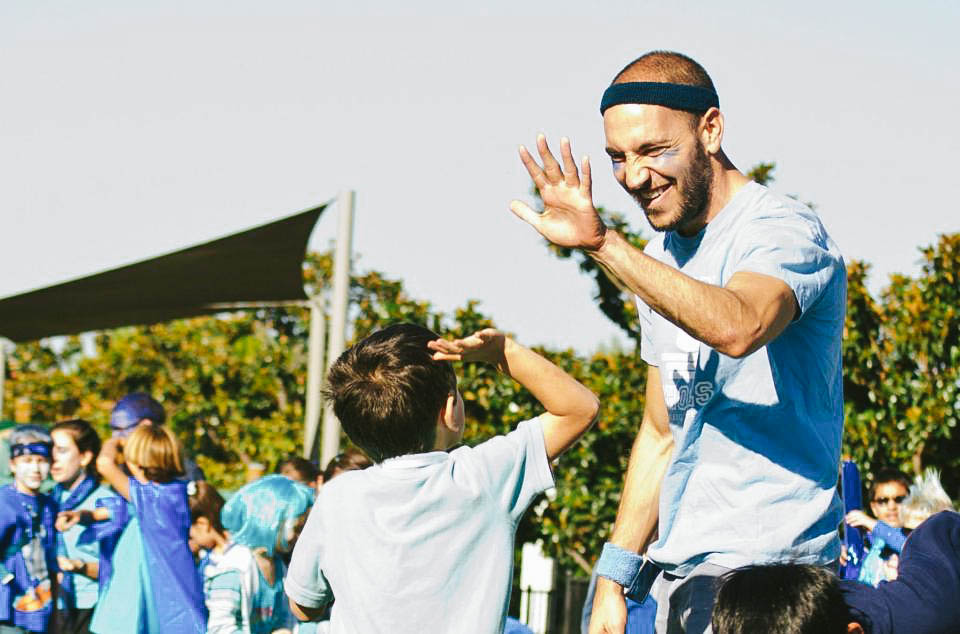
Related, our early backgrounds matter a lot but they don’t define us. As Montessori said, “Environment is undoubtedly a secondary factor in the phenomenon of life; it can modify in that it can help or hinder, but it can never create.” No doubt it can be hard work to improve if one’s childhood was not so good, but we decide our fate, we create the person we want to be.
Q: What inspired you to share your Montessori story on your podcast, in your upcoming book, and on social media?
I want as many children and adults to enjoy as much out of life as possible. I like being around happy people, so why not aid parents and teachers in how to work with children so everyone is a bit happier each step of the way? And on a global scale, the more that individuals are enjoying their lives the less nonsense we have in the world. People who are content with themselves don’t start trouble with others. We know this to be true with children in our Montessori environments, and it’s no less true in our own adult societies.
Q: What advice do you have for new parents trying to incorporate Montessori at home?
This is an easy one: jump into Parenting FastTrack. It’s “marketed” to parents who are having difficulties with their children (e.g. “Ugh, how do I get my child to listen?!”) but I work with new moms and dads to preempt problems so they can enjoy the experience from the beginning. Montessori parents can find themselves bombarded with advice and advertisements, especially around this or that “Montessori material” for the home. I help sift through all that, getting to the powerful basics of Montessori for parents.
Also, a free site I appreciate is AMI/USA’s Montessori Guide. It’s made for Montessori teachers but there are a few warm, thoughtful videos there from which parents can gain a lot.
Q: What do you think is the best introduction to Montessori?
Tough question. My first response is to spend a day or a half a day — or even just an hour — in a Montessori classroom. Turn off your cell phone, turn off your prejudging mind, and just sit down and observe.
I say it’s a tough question though because my answer assumes the classroom you’re observing is good. But not all Montessori classrooms are created equal; the name “Montessori” was never trademarked so I’d hate to recommend sitting in on a classroom and it winds up being Monti- sorta: a classroom that’s not really Montessori, that’s not actually effective for children.
Although I haven’t been in on one of your classrooms at Baan Dek, I feel pretty confident in recommending a parent get out to your school and observe. (Don’t let me down, Baan Dek! ;-)) And there are schools/classrooms I can recommend with confidence. But ultimately people have to do the research. Find great Montessori schools and visit them, even if they’re not in your neighborhood or state or country. And I mean this. I think we can get trapped in stale thinking; I know I can at times. Why not book a flight to a school that you’ve heard is phenomenal? So it might cost $500 for a plane ticket. That’s a small price for the potential of gaining a new outlook on children. Looking back, I can’t begin to tell you the value of my first experience observing in a Montessori classroom. Way more than $500!
“We need to never give up on ourselves as adults.”
Q: What continues to inspire you about Montessori?
Maria Montessori herself continues to be a huge inspiration. The woman was just such a giant, both in mind and spirit. She was so thoughtful and yet so caring at the same time.
Also children. It feels like it’s every day I see or hear about a child doing something that inspires me. From the littlest thing, like a boy picking up some dropped golden beads for a peer, to the most impressive occurrences, like a girl working on a math problem for 3-hours straight! That kind of focus still amazes me. How many of us adults can concentrate for even 15 minutes without having to check this or that thing, swipe to this or that app, etc.?
And also parents. They have such a challenging job but also one of the most rewarding. It’s special for me to experience moms and dads figuring things out about themselves while they’re raising their children. It’s inspiring to see that life-long growth Maria Montessori talks about.
Q: In what ways do you envision the future of education?
That’s another tough one. I’ll say this: I think much of college as we know it will be changing. Many universities today are bloated with classes that don’t help young men and women actually develop themselves for later careers. And smart students are beginning to see this. (Google “successful people who skipped college”.) The world is changing quickly and universities need to start offering something more valuable — and fast — if they don’t want to become relics.
Another thing, for parents, is that traditional college funds don’t make sense anymore. Focus on the development of your child TODAY, not on his schooling a dozen years out. As Maria Montessori said (and as studies continue to confirm): “The most important period of life is not the age of university studies, but the first one, the period birth to age six.”
We’re seeing a huge shift toward early education, as evidenced most dramatically by Amazon’s Jeff Bezos literally spending $1 billion on a network of “Montessori-inspired preschools”. (Bezos was a Montessori child himself.) So I say put your money into tuition for a great Montessori program. With the “aid to life” of a solid Montessori education, by the time your child is old enough to potentially go to college he will have found a creative way to pay for it himself — or he’ll be like one of the growing number of successful young entrepreneurs who choose to skip it altogether.
Q: Where do you see Montessori in the next 100 years?
I don’t know. But I have a lot of confidence in what the children of today might create for us tomorrow — so who knows, maybe we’ll still be around to see for ourselves what Montessori looks like in 100 years! :)
Written by:
Charlotte Snyder
